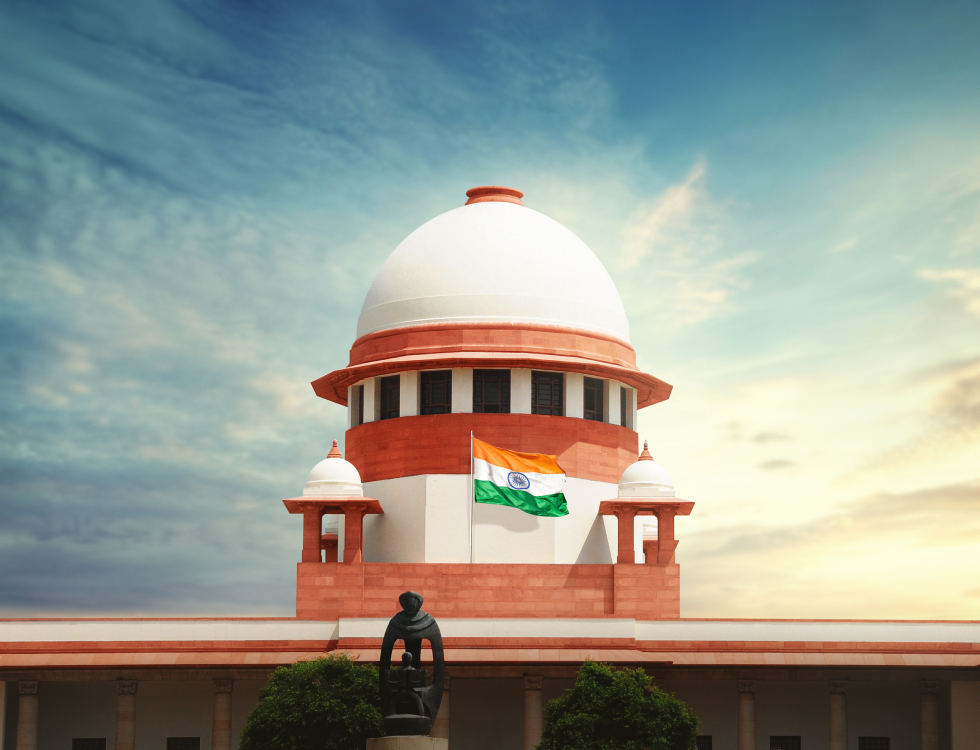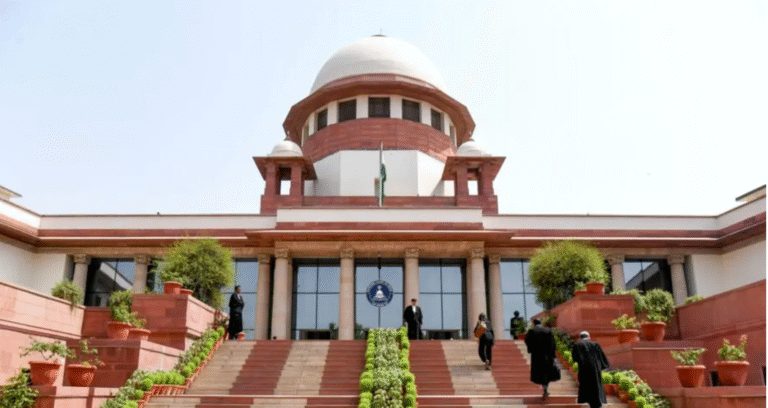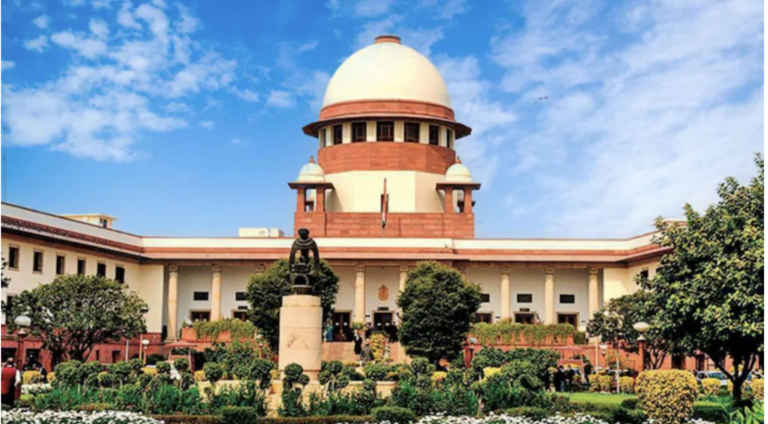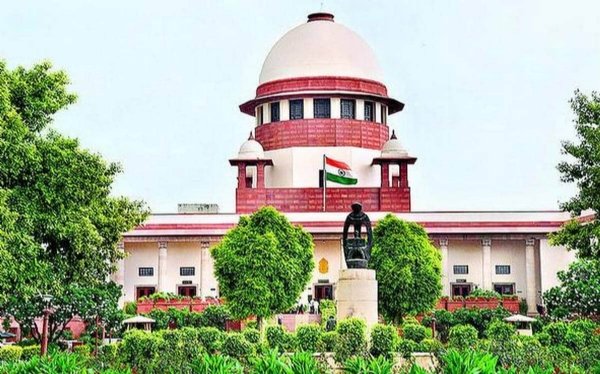Supreme Court Slams Bar Council: Rejects Argument and Stays Disciplinary Proceedings Against Advocate Charanjeet Chanderpal

Bar Council’s Flawed Position Exposed: Claimed Writ Petitions Not Maintainable Against Disciplinary Proceedings
Web of Corruption and Incompetence Within BCMG Uncovered: New Complaint Filed Against Advocate Uday Warunjikar and Other Members for Dishonesty, Abuse of Power, Forgery, Sycophancy, and Gross Misconduct.
BCMG Members Maintain Silence on Landmark Judgments by Hon’ble CJI Bhushan Gavai – Deliberately Avoid Passing Resolutions Supporting rights of advocates.
Bombay High Court Already Rebuked Advocate Uday Warunjikar: Strong Observations Made on His Suppression of Facts and Lack of Legal Acumen
Contempt Proceedings Demanded Against Bar Council Members for their Wilful Misconduct, Suppression of Binding Precedents, and Defiance of Judicial Authority
New Delhi/Mumbai, 2 August 2025: In a major setback to the Bar Council of Maharashtra & Goa (BCMG), the Hon’ble Supreme Court of India has stayed the ongoing disciplinary proceedings against Advocate Charanjeet Chanderpal, overruling the controversial view taken by the Bombay High Court which had earlier held that writ petitions were not maintainable against disciplinary proceedings initiated by the Bar Council.
The Division Bench of the Hon’ble Bombay High Court, vide its order dated July 2025, took the view that a writ petition is not maintainable against disciplinary proceedings initiated by the Bar Council, and that the appropriate remedy lies in filing an appeal against any adverse order. However, this judgment is clearly per incuriam, as the Hon’ble Supreme Court has, in numerous binding precedents, categorically ruled that when any authority acts without jurisdiction, in violation of principles of natural justice, misuses its powers for unauthorized purposes, or adopts procedures contrary to the provisions of the Act and Rules, the writ jurisdiction of the High Court must be invoked to prevent the miscarriage of justice.
It is observed that certain members of the Bar Council are not functioning in the interest of the legal profession or for the protection of advocates’ rights. Instead, they appear to be operating as a self-serving private entity, prioritizing the interests of a select group of dishonest and corrupt advocates, rather than upholding the dignity, independence, and ethical responsibilities of the Bar. Such conduct is not only contrary to the objectives and statutory duties of the Bar Council under the Advocates Act and Bar Council Rules, but also in direct violation of the law laid down by the Hon’ble High Courts and the Hon’ble Supreme Court—particularly under the leadership of Hon’ble Chief Justice of India Shri Bhushan Gavai. The Apex Court has delivered several landmark judgments safeguarding the rights, dignity, and professional autonomy of advocates, and insulating them from frivolous, malicious, and vindictive disciplinary or contempt proceedings initiated by Bar Councils acting beyond their legal mandate.
These judgments are :- Dushyant Mainali v. Diwan Singh Bora, 2024 SCC OnLine SC 5178 ; T.G. Babul, In re, 2018 SCC OnLine Bom 4853 ; Ghanshyam v. State of Maharashtra, 2017 SCC OnLine Bom 9984 ; R. Muthukrishnan v. High Court of Madras, (2019) 16 SCC 407 ; High Court of Karnataka v. Jai Chaitanya Dasa, 2015 SCC OnLine Kar 9098.
However, certain dishonest and self-serving members of Bar Councils and Bar Associations—acting as proxies for corrupt judicial interests—have willfully suppressed landmark rulings that empower the legal profession and reinforce judicial accountability. Instead of discharging their solemn responsibility to uphold constitutional values and safeguard the independence of the Bar, these individuals have actively fostered a culture of fear, subservience, and blind obedience among advocates, thereby undermining the core principles of professional autonomy and dignity.
These individuals have not only failed to disseminate or promote awareness of binding judicial pronouncements that fortify the rights and constitutional status of advocates, but have also deliberately refrained from passing even the most basic resolutions to acknowledge or welcome such progressive rulings. Their calculated silence and institutional inaction are not passive lapses, but rather a conscious betrayal of the legal fraternity and a direct assault on the constitutional protections guaranteed under Articles 14, 19(1)(g), and 21 of the Constitution of India.
By undermining efforts to establish judicial accountability and reinforce the independence of the Bar, these actors are eroding public trust in the justice delivery system, enabling impunity, and compromising the integrity and ethical foundation of the legal profession.
This disturbing pattern of conduct makes it abundantly clear that such individuals are not operating in the interest of advocates or the profession at large, but are instead advancing narrow, self-serving agendas—possibly to shield corrupt judicial elements or consolidate personal power within Bar institutions. Such conduct is not only ethically reprehensible and legally indefensible, but also poses a grave threat to the foundational ideals of justice, fairness, and constitutional governance.
On the contrary, certain dishonest, sycophantic, and self-serving members of the Bar—most notably Advocate Milind Sathe, Advocate Nitin Thakkar, and Advocate Vishal Kanade—have shockingly passed resolutions endorsing overruled and unconstitutional judgments that undermine the fundamental rights of advocates and the rule of law. One such judgment is National Lawyers Campaign for Judicial Transparency & Reforms v. Union of India, (2020) 16 SCC 687.
In that decision, the Hon’ble Supreme Court, in a highly controversial and now discredited view, laid down that advocates possess no legal rights and can be convicted and sentenced to imprisonment without any notice, without being heard, and without undergoing a fair trial. This ruling flies in the face of every constitutional guarantee under Articles 14, 19(1)(g), and 21, and violates the very foundation of natural justice. Yet, this judgment—despite being widely criticized and effectively overruled in subsequent decisions—was welcomed and celebrated by these members through official resolutions, thereby revealing their anti-Bar and anti-advocate mindset.
Even more dangerously, the Bombay Bar Association (BBA), under the influence of such members, passed a resolution with a shocking proposition: that judges should enjoy absolute immunity—even in cases where they commit criminal offences, engage in corruption, wilfully insult members of the Bar, disregard binding constitutional precedents, or pass blatantly unlawful orders based on personal whims or vendetta.
Such resolutions are not only legally untenable and morally repugnant, but they also strike at the heart of constitutional democracy, promote judicial unaccountability, and attempt to reduce advocates to a subservient, voiceless class. This dangerous narrative must be confronted and rejected by every right-thinking member of the legal fraternity.
In the case of Ujwala J. Patil v. Slum Rehabilitation Authority, 2016 SCC OnLine Bom 5259, the Division Bench of the Hon’ble Bombay High Court took serious note of the dishonest conduct, professional incompetence, and lack of legal understanding displayed by Senior Advocate Uday Warunjikar. The Court passed strong strictures against him for suppressing material facts and documents. Law is already settled by holding that such suppression constitutes a fraud on the court—a grave ethical and legal violation.
Pursuant to such judicial findings, the Indian Lawyers & Human Rights Activists Association has submitted a detailed complaint seeking criminal prosecution of Advocate Uday Warunjikar and similarly positioned members of the Bar Council, accusing them of misusing their positions, misleading the courts, and betraying the statutory duties entrusted to them. The complaint also seeks his immediate removal from the Disciplinary Committee and permanent debarment from the practice of law for repeated misconduct and abuse of power.
Furthermore, it has come to light that many members of the Bar Council of Maharashtra & Goa lack even the basic understanding of the procedures and legal safeguards governing disciplinary proceedings. This disturbing fact was exposed during a hearing held on 23rd July 2025 before the Disciplinary Committee in a matter concerning Advocate Vijay Kurle. During the proceedings, Advocate Nilesh Ojha brought to the Committee’s attention that the view taken by Advocate Uday Warunjikar had already been overruled by the Hon’ble Supreme Court, thereby revealing that Mr. Warunjikar lacked awareness of binding judicial precedents and displayed a fundamental deficiency in legal competence—making him wholly unfit to adjudicate disciplinary matters concerning fellow advocates.



